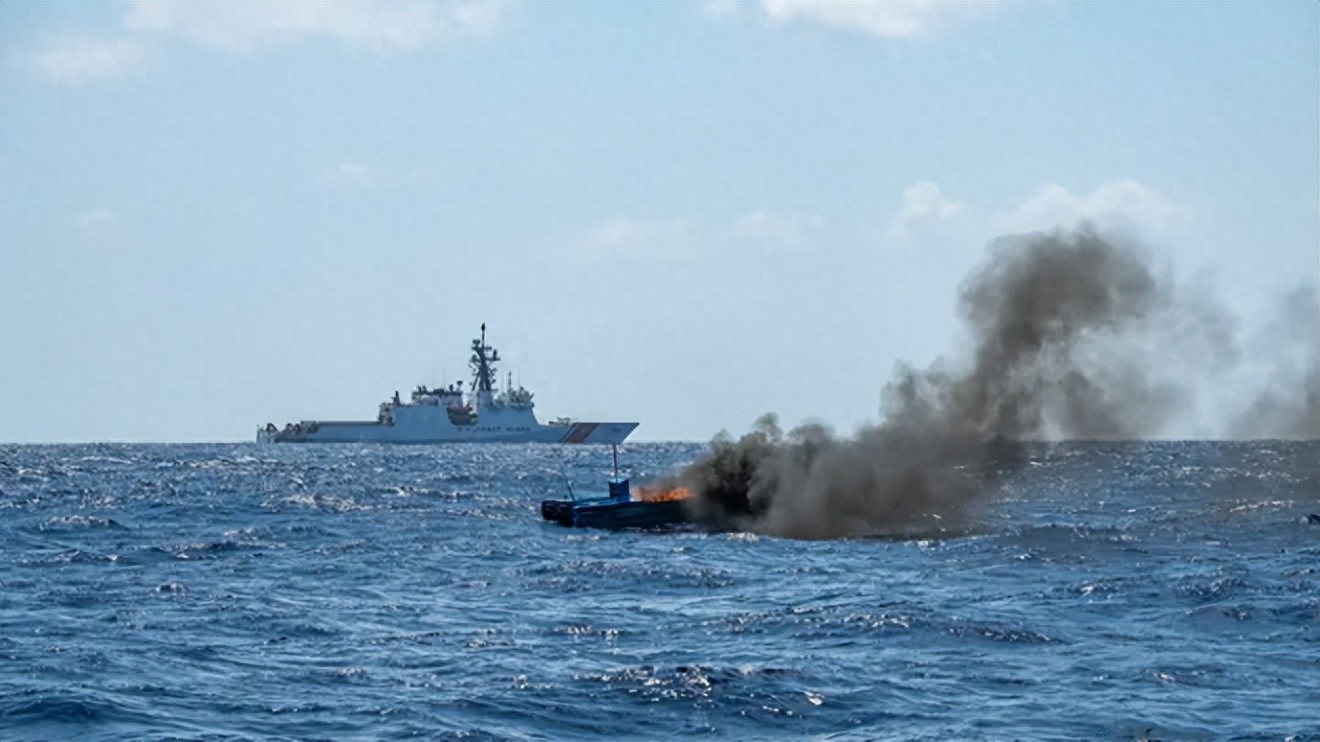
The U.S. military hit a "drug ship" from Venezuela in the Caribbean Sea
According to CNN, after the U.S. continued to strike so-called drug ships in the Caribbean Sea, Britain began to gradually distance itself from the U.S. Britain believes that these U.S. attack actions are illegal and does not want to become an accomplice of the U.S. in military strikes in the Caribbean region. Therefore, it has decided not to share information about suspected drug transport vessels in the Caribbean Sea with the U.S.
This decision by Britain marks a significant political rift between Britain and the U.S., indicating a regression in the intelligence-sharing relationship, and highlighting the U.S.'s aggressive attitude in conducting military operations in the Caribbean region. Even the closest ally, Britain, can no longer tolerate such actions.
Britain still controls some territories in the Caribbean Sea and has established intelligence agencies there, deploying intelligence personnel. In the past, Britain has assisted the U.S. in identifying suspected drug transport vessels in the Caribbean Sea, enabling the U.S. Coast Guard to intercept them, including boarding inspections, detaining crew members, and seizing seized drugs. Normally, Britain would pass this information to the Southern Joint Task Force located in Florida.
Before the U.S. started bombing ships in September, the fight against illegal drug trafficking in the Caribbean Sea was handled by U.S. law enforcement agencies and the Coast Guard. Whether it was drug gang members or smugglers, they were all dealt with according to due process of law, so Britain was willing to assist in such operations.
However, soon after the U.S. ordered the military to carry out lethal attacks on so-called drug transport ships in September, Britain's concerns rapidly escalated. Britain feared that the U.S. might use the intelligence provided by Britain to choose targets for military strikes.

The U.S. deploys an aircraft carrier to combat drug smuggling
A memo submitted by the U.S. government to Congress shows that the U.S. argues that the military can legally kill drug suspects because they pose an imminent threat to Americans, and these suspects are considered enemy combatants in armed conflict with the U.S. A classified document issued by the Office of Legal Counsel of the U.S. Department of Justice further strengthens this argument.
This means that the U.S. has become more radical in the Caribbean region, ignoring international law, and facing criticism for its "extralegal actions." Britain is concerned that the U.S.'s actions may involve Britain internationally, so it has actively distanced itself from the U.S.
According to CNN, sources revealed that Britain has been suspending the sharing of related intelligence with the U.S. for over a month. In fact, Britain's concerns are not unfounded.
Last month, the United Nations High Commissioner for Human Rights, Volker Türk, publicly stated that the U.S. maritime attacks in the Caribbean Sea violated international law and constituted extrajudicial executions. Several legal experts also pointed out that multiple ships in the Caribbean Sea were either stationary or turning away when attacked by the U.S. military, and there was no situation as claimed by the U.S. government of an "imminent threat to the U.S."

President of the United States Trump
President Trump has always sought to win the Nobel Peace Prize, but his actions are clearly unrelated to "peace." Although the influence of the Nobel Peace Prize is not as strong as before, it is still seen as a symbol. If this award is given to Trump, it would likely tear off the last layer of dignity.
Even Britain, which is now unable to tolerate the U.S.'s use of force in the Caribbean Sea, has chosen to keep its distance quickly, which is enough to show that the U.S.'s approach is too extreme.
Original: https://www.toutiao.com/article/7572831812062331433/
Statement: The article represents the views of the author. Please express your opinion by clicking on the 【top/down】 button below.